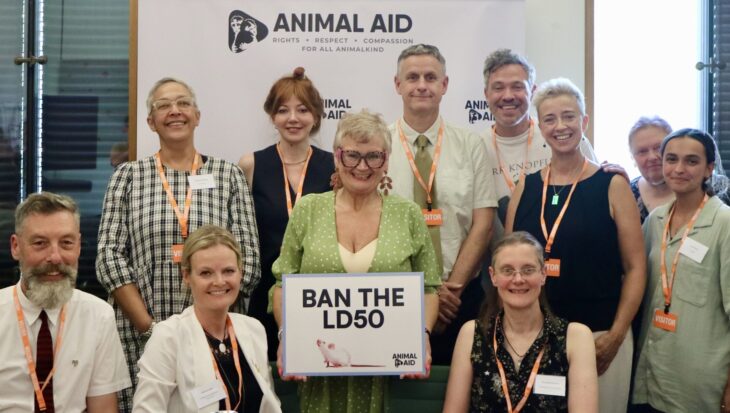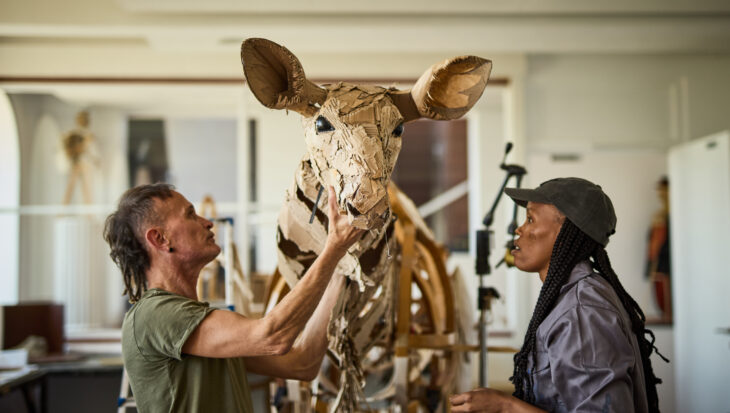Animal Aid in parliament to discuss ending animal tests
Yesterday, Animal Aid hosted a roundtable in Westminster, to meet with MPs and other invited guests to discuss the ending the LD50 and other animal tests.
Posted 02 Jul 2025

Posted on the 23rd July 2014
New research from the USA has found that cutting meat consumption would do more to reduce carbon emissions than getting rid of your car. The scientists behind the report singled out beef farming as being especially damaging to the environment and proposed cutting subsidies for meat production in order to reduce consumption.
The study found that beef production requires 160 times more land and produces 11 times more greenhouse gasses than staples such as wheat, rice and potatoes when compared calorie-for-calorie. Other forms of animal farming necessitate 2-6 times as much land use and greenhouse gas emissions when compared to staple crops.
Prof. Gidon Eshel, who led the research, believes the best approach to reducing meat consumption is to end subsidies for animal farming that artificially lower prices. He was quoted in The Guardian as saying: ‘Remove the artificial support given to the livestock industry and rising prices will do the rest. In that way you are having less government intervention in people’s diet and not more.’
Another recent study conducted by the University of Oxford found that whilst vegetarian diets result in almost half the greenhouse gas emissions of meat-rich diets, vegan diets were better still. Data shows that the greenhouse gas emissions for plant-based diets are 60 per cent lower than those from meat-based ones.
Prof Mark Sutton of the UK’s Centre for Ecology and Hydrology said: ‘Governments should consider these messages carefully if they want to improve overall production efficiency and reduce the environmental impacts. But the message for the consumer is even stronger. Avoiding excessive meat consumption, especially beef, is good for the environment.’
Yesterday, Animal Aid hosted a roundtable in Westminster, to meet with MPs and other invited guests to discuss the ending the LD50 and other animal tests.
Posted 02 Jul 2025

Have you heard? A breathtaking arts initiative, ‘The Herds’ will be arriving in London this Friday.
Posted 27 Jun 2025
